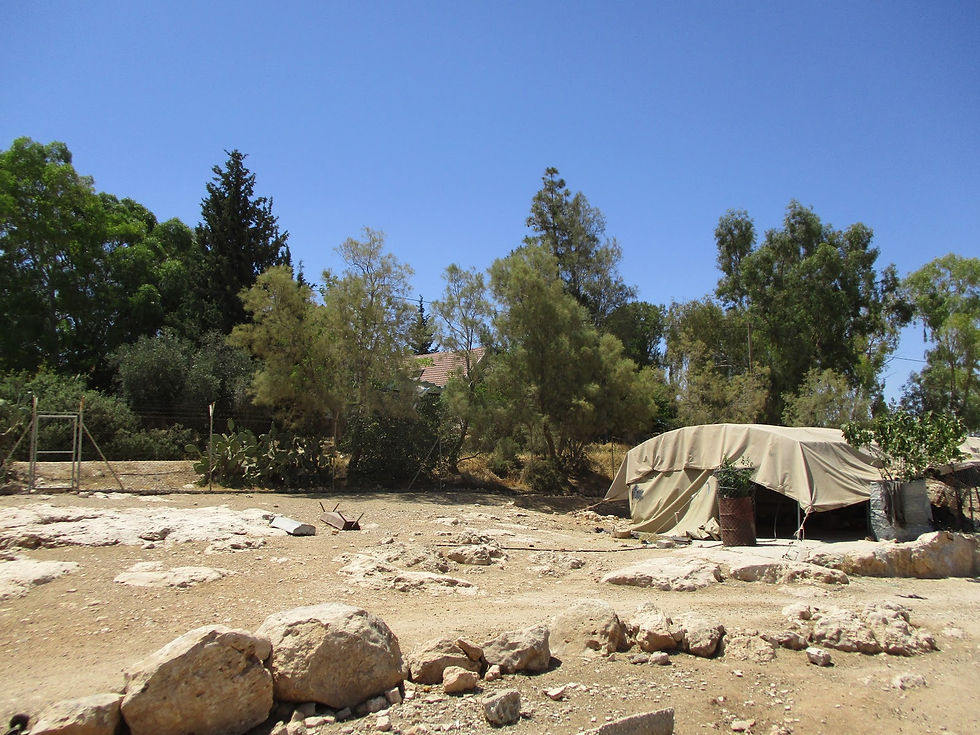West Bank Peace Team: Summer 2018, June 26
- Mary L. Hanna
- Jun 26, 2018
- 3 min read
First Assignment: Bil’in
After meeting in Jerusalem Sunday night and sightseeing in the Walled City Monday morning, we headed out to our first team assignment: witnessing to and perhaps mitigating Israeli invasions of the homes of resistance leaders which occur sporadically in the little village of Bil’in. The forced entrances are carried out well after midnight and our team had to be ready to arrive on the scene minutes after we were called. The first night there were no invasions, but our Palestinian hosts told us that they can occur twice a week or more.
The village of Bil’in gets this “special attention” from the Israeli military because of their proud—and successful—history of resistance. Their weekly demonstrations, beginning in 2005, caused the Israelis to remove a portion of the Wall of Separation, which had divided the village in two since 2003, with 60% of their farmland on the other side of the wall. The protests, which had been organized by our host, Iyad Burnat (who won the James Lawson Award for Nonviolent Resistance in 2015) involved hundreds of villagers, often joined by internationals, marching from the town center to the wall. In 2007, the Israeli Supreme Court decided in favor of the Palestinians, ruling that the construction of the separation barrier was illegal and finally, in 2011, the wall was taken down and re-constructed 500 meters back.

On the recovered farmland, the people of Bil’in have put up greenhouses (donated by a Malyasian nonprofit) which allow them to raise tomatoes, cucumbers, okra, green beans, eggplants, and other vegetables organically. As we toured the rows and sampled the produce, Iyad explained that farming (they also grow grapes) is their most effective form of resistance today. “If the land is in use,” he said, “if people are working it,” the Israelis will be less likely to try to seize it again.” The farmers tending the greenhouses raise the vegetables for profit, but also for free distribution to community members. We were all impressed by the greenhouse tour, but when we sat down later to talk with Iyad about the goals of the resistance movement, a somber tone prevailed. Sitting in a tent drinking thimblefuls of strong coffee which one of the farmers had prepared for us on his camp stove, we could look out past the Palestinian farmland, to the Israeli settlement just beyond it. The settlers’ homes, with their white walls shining brightly in the morning sun, included “swimming pools and beautiful gardens,” Iyad said, because the Israelis had taken over access to the local water, forcing the Palestinians to buy it back from them. There are now 70,000 settlers near Bil’in, “most of them,” he laughed ruefully, “from New York!” Subsidized by the Israeli government, they are free to travel throughout the country and abroad—unlike the Palestinians. “A lot of those homes are empty,” he told us.

When we asked Iyad what he envisioned for the future, he said nothing about a Palestinian state nor one state for Israel and Palestine with full membership for the Palestinians, but only “a better life for my children.” After seeing the facts on the ground for ourselves, it seemed to us, too, that the Israeli drive to populate the West Bank with settlers (the goal is 250,000 in the settlement near Bil’in) will be inexorable and more and more of the Palestinians’ land will be taken, wall or no wall. At 44, Iyad has struggled against the Occupation his entire life; he has been jailed 18 times (the first time at 17 for two years) beaten, and now, he says, his children are being attacked. His three older sons have all been shot by the Israelis and one of them is currently in jail. Listening to him talk, I wondered if I would be as staunch as Iyad in his resistance to injustice. But there is clearly no turning back for him. He spoke passionately about the power of nonviolence: “nonviolence makes you strong,” he said. “When you confront the soldiers, you realize they are weaker.”He talked about teaching his children (who “have never been to the sea” and “have never seen Jerusalem”) “not to hate.” “Love is stronger than hate,” he said. He didn’t share with us what sustains him in his work, but he alluded to it, “peace comes from the inside.” When he said that, for just a moment, I envied Iyad Burnat.







Comments